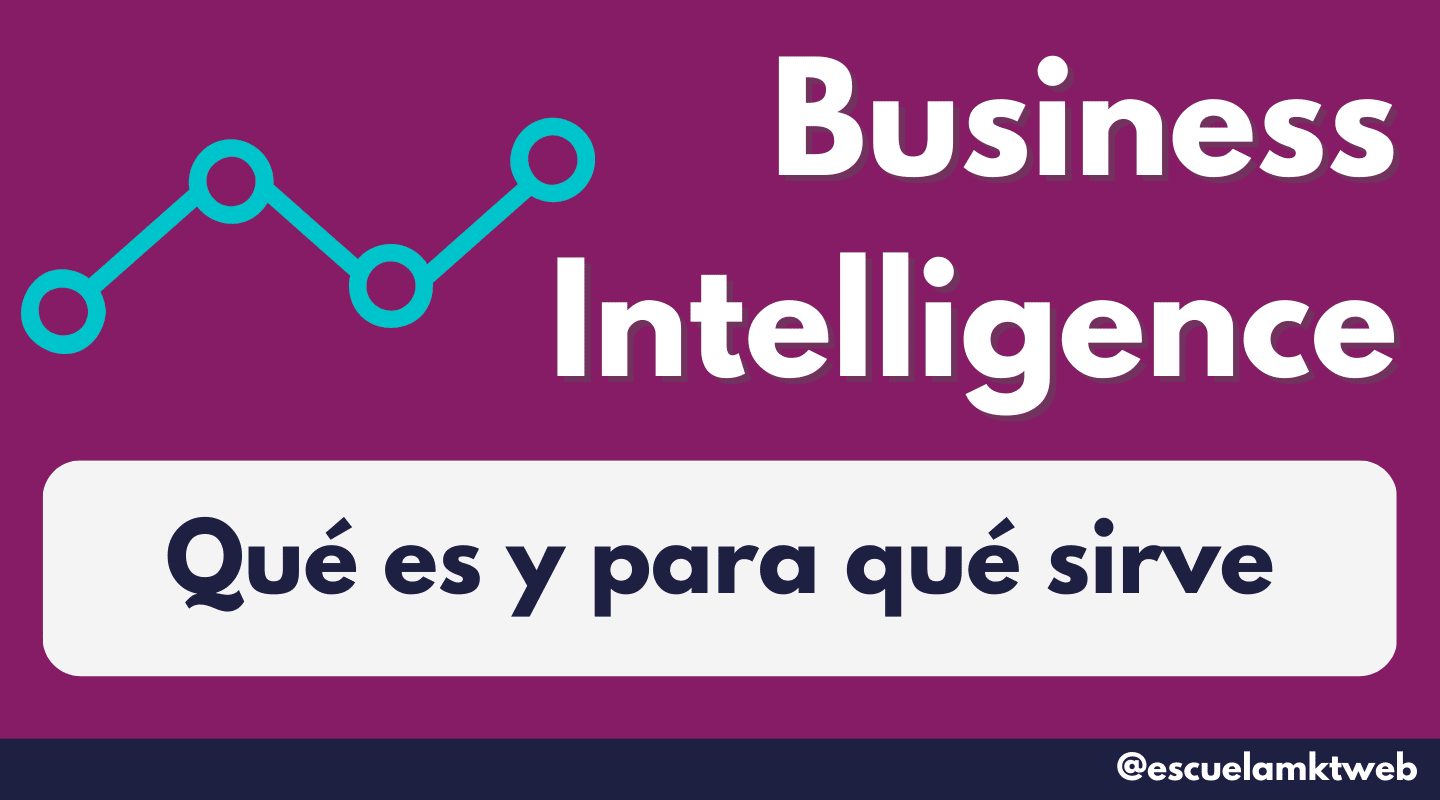
One of the fashionable terms in the business world is Business Intelligenceand if you have heard it for the first time, there are surely many questions running through your head about its meaning.
In this article we are going to explain to you What is it, what is it for?and even what you should study to work in this field.
What is Business Intelligence?
He Business Intelligence It’s a way to understand how a business is running using data and numbers. Data is collected, analyzed and presented in an easy-to-understand way to help make better business decisions. It is like a map that shows how the company is evolving, and what paths are the best to follow for its correct development.
Another term related to this field is Big Data, which also consists of the collection and processing of data for decision making. In fact, you will like to know that it is one of the best-paid professions at the moment, so everything that has to do with data analysis is a wise decision to have a promising professional future.
What are the functions of staff in Business Intelligence?

The duties of a person working in Business Intelligence can vary depending on the industry, size of the organization, and specific position within the company, but these are some common tasks:
- Data collection and integration: This process involves collecting and combining data from different internal and external sources to have a complete view of the information. For example, you can use Google Analytics to check website statistics, or Metricool for social media.
- Data visualization: This task involves representing data in an easy-to-understand way, using graphs, tables, and other visualization tools. To do this you can use tools like Looker Studio or Google Charts, both free.
- Predictive analysis: Although this task is more complex and requires development, mathematical models and algorithms are used to predict the future of the company based on current data, and provide valuable information to make decisions by analyzing the information you currently have.
- Consultancy: In this last step, we advise managers and the rest of the team on how to improve data-driven decision making, as well as the conclusions and the path to follow in light of the results obtained in the reports.
Applied Business Intelligence Examples
You will see that, as I mentioned at the beginning of the article, Business Intelligence is very similar to Big Data. Some of the most common uses of Business Intelligence in companies are the following, but you can find as many as you can think of:
- Sales Analysis: to analyze sales data and better understand customers, best-selling products, and purchasing patterns. For example, Amazon uses it to predict what other products you would want to buy in the future, or another additional one to the one you are looking at to complement it and add both to the shopping cart.
- Supply chain optimization– You can monitor inventories, delivery times and production costs to ensure you are operating efficiently and profitably. For example, is there a location where supplies are always delivered late? Is there a more optimal route for delivery? Are the merchandise delivery times the most optimal?
- Customer satisfaction analysis– Analyze customer satisfaction surveys and gain a deeper understanding of customer opinions and needs.
- Competition monitoring: monitor and compare our performance with that of our competitors, and use this information to inform the strategy of our main competitors.
- Financial analysis: We can also use Business Intelligence to analyze our financial status and monitor income and expenses to improve these figures every quarter, so that the profit becomes greater and greater.
What to study to work in Business Intelligence?
For work in Business Intelligencedifferent university careers can be studied, depending on the desired specialty, but here are some common options:
- Computer’s science: This degree teaches how to design, program, and use technologies to analyze and present data.
- Data engineering– Focuses on how to collect, organize, and analyze large amounts of data to gain valuable insights.
- Statistics: This career focuses on how to analyze and present data, and is essential for many aspects of Business Intelligence, such as predictive analytics.
- Business: A career in business provides a solid understanding of how organizations work and how to use data to improve business decision-making.
In addition to studying a specific career, it is important to have skills in programming, data analysis and visualization, and be familiar with data visualization and processing tools, such as SQL, Looker Studio, Tableau or Power BI. It is also useful to have communication and slide design skills to be able to present clear and concise information to managers or any other team member.
If you are interested in training in the digital sector, we also recommend that you take a look at our Master of Digital Marketing, with face-to-face classes in Valencia but also with online modality, to open the doors to the world of work in the online sector.
And you, what do you like most about Business Intelligence?
Podcaster at Campamento Web, the most listened to Spanish-speaking SEO news and interview program for more than 5 years. Also, creator of Clave Podcast, the podcasting portal to train you as a podcaster. Graduated in Communication from Loyola University and SEO consultant, although currently focused more on his own projects focused on the field of communication and web positioning.
Source: https://www.marketingandweb.es/marketing/business-intelligence/


